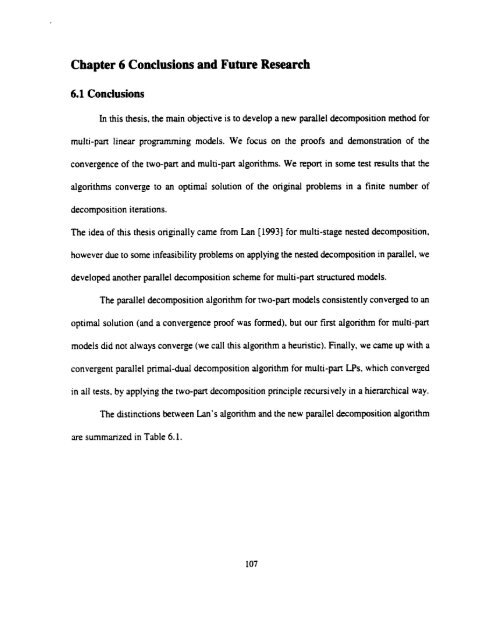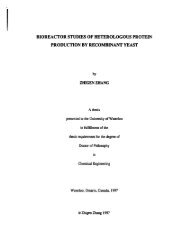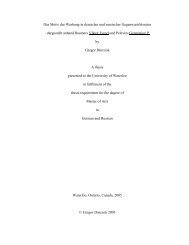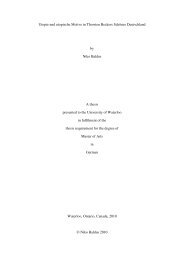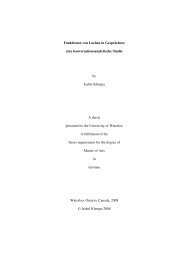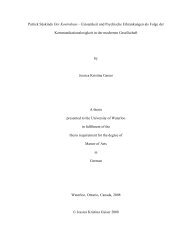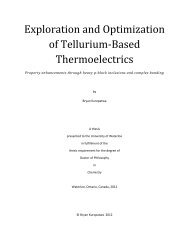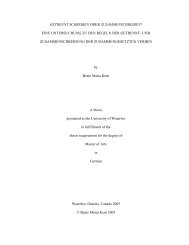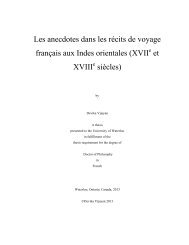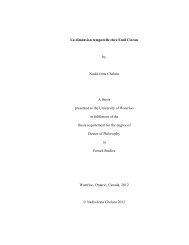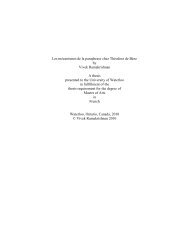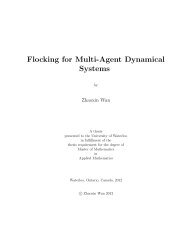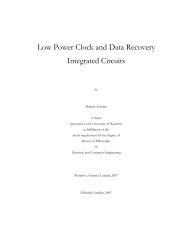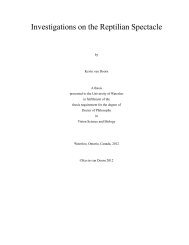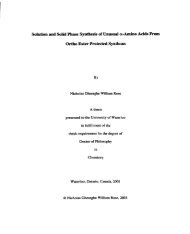X - UWSpace - University of Waterloo
X - UWSpace - University of Waterloo
X - UWSpace - University of Waterloo
You also want an ePaper? Increase the reach of your titles
YUMPU automatically turns print PDFs into web optimized ePapers that Google loves.
Chapter 6 Conclusions and Future Research<br />
6.1 Conclusions<br />
In this thesis, the main objective is to develop a new parallel decomposition method for<br />
rnulti-part linear prograrnmjng models. We focus on the pro<strong>of</strong>s and demonsuation <strong>of</strong> the<br />
convergence <strong>of</strong> the two-part and multi-part dgorithms. We repori in some test results that the<br />
algonthms converge to an optimal solution <strong>of</strong> the original problems in a finite number <strong>of</strong><br />
decomposition i terations.<br />
The idea <strong>of</strong> this thesis originally came frorn Lan [1993] for multi-stage nested decomposition.<br />
however due to some infesibility problems on applying the nested decomposition in parallel, we<br />
developed another parallel decomposition scheme for multi-part stxuctured models.<br />
The parallel decomposition algorithm for two-part models consistently converged to an<br />
optimal solution (and a convergence pro<strong>of</strong> was formed). but our fint aigorithm for multi-pan<br />
models did not always converge (we cal1 this algrithm a heuristic). Finally, we came up with a<br />
convergent pûrallel primal-dual decomposi tion aleorithm for multi-part LPs. w hich convergeci<br />
in al1 tests. by applying the two-part decomposition principle ~cursively in a hiemhical way.<br />
The distinctions between Lads algorithm and the new parallel decomposition aigorithm<br />
;ire summarized in Table 6.1.


